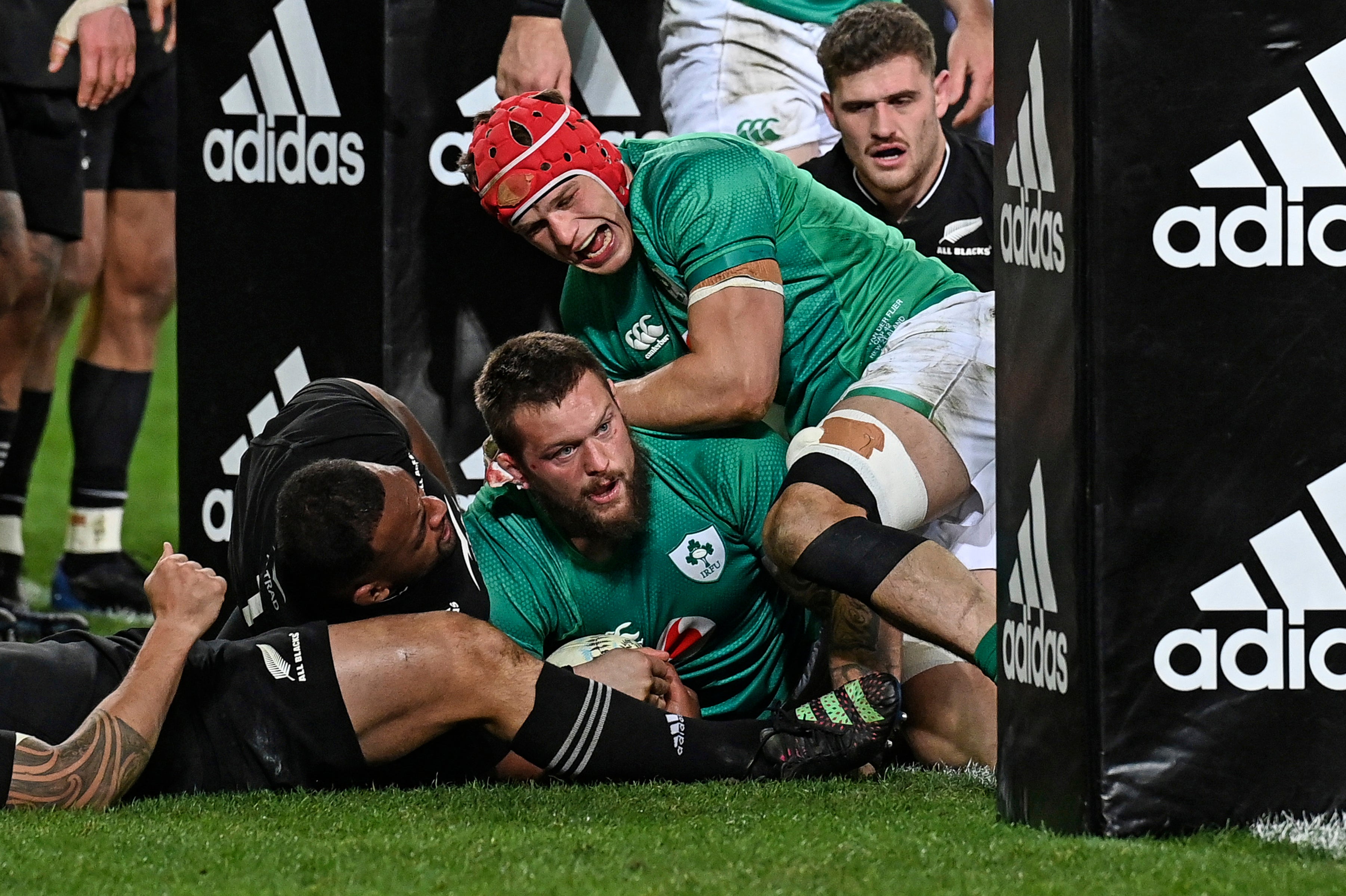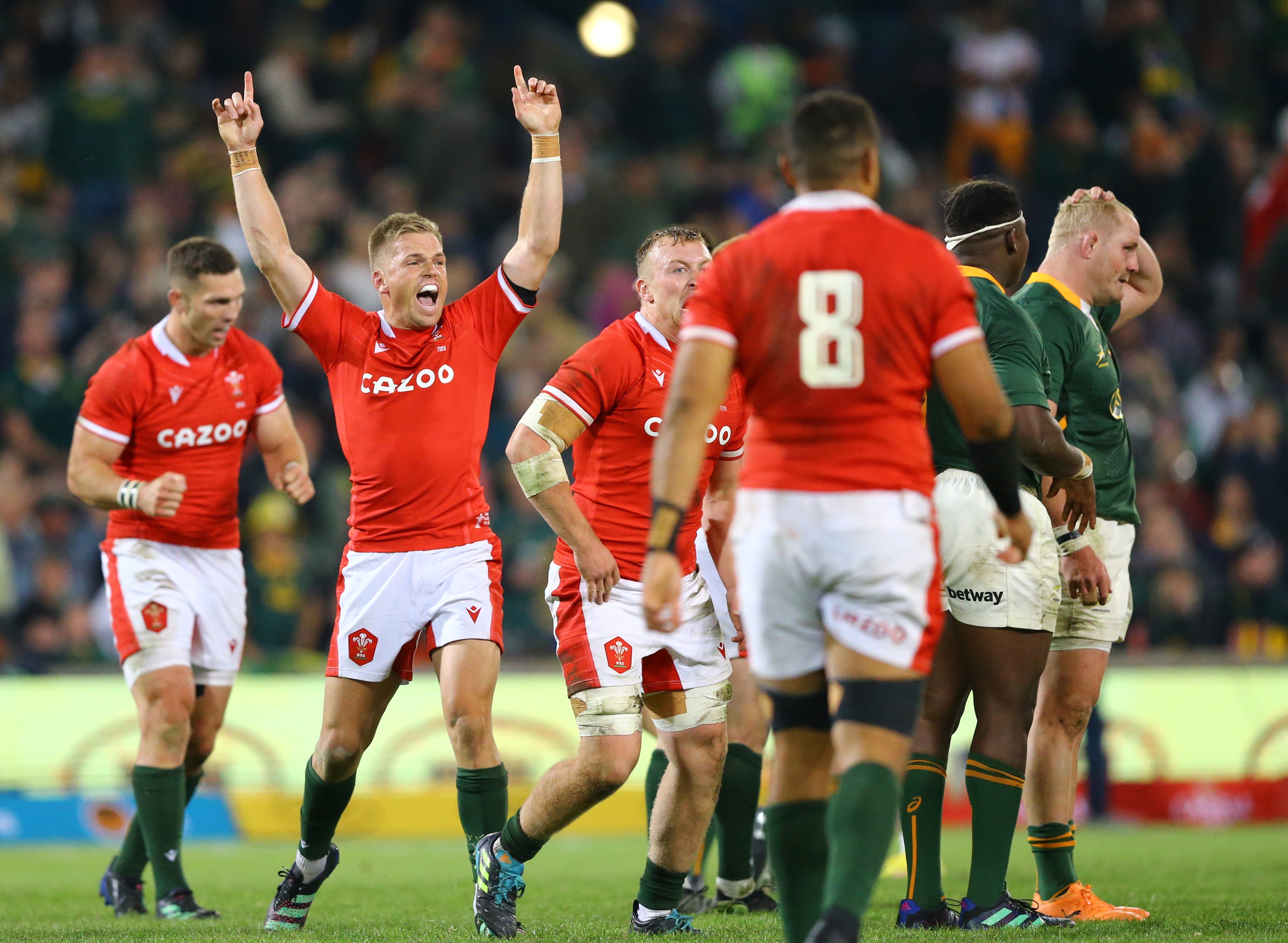
Sometimes, as any headline act will tell you, the old favourites are required to get a drifting crowd back on side. Short of self- and public confidence, England have tried out plenty of new material in the last 12 months, but with the pressure on and in desperate need of a win, it was time to shut up and play the hits.
After yet more talk of evolution in the lead-up to the second Test, this was a performance redolent of England’s 2019 best. From the moment that Ellis Genge trampled over Michael Hooper in the first 40 seconds, an emphatic opening riff, the tone was set for an imperious opening half-hour in Brisbane, the best 30 minutes that England have produced since their World Cup highs.
Playing with a clarity and intent seldom sighted during the identity crisis of the last two years, England kicked early and often, exerting pressure with their accuracy and the togetherness of their chase, the power of their maul. Courtney Lawes, Billy Vunipola, Jack Nowell and Owen Farrell were all prominent – the older faces driving so-called new England, who went back to their basics to at last take an overdue step in the right direction.
It did not last, of course – England, to extend the metaphor, still have self-destructive tendencies, wobbling again under pressure. Indeed, on a day of better injury luck for the Wallabies, the hosts’ surge may have continued, backed by a boisterous Suncorp Stadium crowd.
But the in-game rot was stopped, that opening salvo and final-quarter steel strong enough to prevent another significant dent to the confidence. Eddie Jones described the defeat to Ireland in the Six Nations as a “foundation performance”; this, he will surely reflect, was another.
“I was more pleased with the last 15 minutes [than the opening half-hour], the way we fought,” assessed the England head coach. “They stuck together. We had three new caps out there at the end of the game and to play with that level of maturity and toughness is a really good sign.
“We played the way we wanted to play, got the rub of the green from the referee, and were able to exert pressure on Australia.”
In England’s identity crisis of the last two years, there has been a feeling they have gone away from the qualities that served them strongly in their last epoch. It has been curious that Jones, who so often laments the lack of time he is afforded with his squad, has been so ambitious in relaunching his attack.
Now was the time to revert to type. England are still blessed with a group of physical forward-carriers, powered particularly in Brisbane by Vunipola, close to his best for the first time internationally in a long while, providing direct, thumping rhythm. Jack van Poortvliet, pressed through the Ben Youngs mimeograph at Leicester, produced a composed, Test-ready showing.
Proof of progress? Maybe not, but a continuation of the losing run risked deep psychological scars. England must still prove they can use blade and bludgeon effectively in attack; Smith and Farrell are still feeling things out, two guitarists each wishing to play lead. But a side that had won only in Italy away from Twickenham since the start of 2021 have managed to force a decider that could fall either way.
Two Tests of attrition have caused significant fitness woe, most obviously for the Wallabies, who will walk wounded into the SCG next weekend. Neither Jordan Petaia nor Izaia Perese seem likely to appear, while a slapdash showing from James O’Connor would have reduced his chances of filling the full-back hole from the start; rugby league convert Suliasi Vunivalu shapes as a potential debutant in the back three. England have already ruled out Maro Itoje and Sam Underhill’s brain injury history would suggest he is a major doubt, too, after leaving the field after a heavy bang to the head.
“I loved that game at Suncorp,” grinned Jones after a much-needed win, already stirring things up for the third Test in Sydney. “That is a good experience. You have got 48,000 people all full of drink and all they want to see is their team win. When you turn them away, it is a great experience. A great feeling.
“It’s 1-1, and the pressure’s on the other mob now. So they’ve got to deal with that pressure. We’ll find ways of getting better. It takes time to put things together, and we’ll be more cohesive next week.”
New Zealand 12-23 Ireland

“It had a bit of everything, didn’t it?” was Andy Farrell’s succinct but spot-on assessment of a chaotic night in Dunedin, with one of the wackiest, wildest, most incident-laden first halves of recent recall. Three cards were shown to the All Blacks and yet New Zealand could still have concluded that they had been looked upon fondly by the officials, and after Beauden Barrett’s opportunistic score on half-time narrowed the visitors’ lead to three, it looked like it might just be one of those nights for Ireland.
Instead, it was one of those nights. After 111 years without a win over the All Blacks, Ireland now have four in the last six years, and an ever-swelling belief that makes a series win eminently achievable. Following the first-week collapse, Farrell and his coaching staff must be credited for instilling calm and clarity amid the carnage. “They keep turning up and breaking their little records and I’m so proud of them,” the Ireland head coach said. “They’ve earned the right for next week to go into a decider.”
South Africa 12-13 Wales

Wales played rather better in the first Test, but the grisly nature of a first-ever win over the Springboks over South Africa win might be forgotten in time given the scale of the achievement. The revisionists will have their work cut out glamourising a rather wretched game, but history, as they say, is written by the victors, and Wales have broken the hoodoo. How delightful to see Gareth Anscombe strike the winning blow after all the fly-half went through during his two-year injury lay-off after his gruesome leg injury in 2019.
South Africa’s much-altered outfit provided a useful reminder of why sweeping changes are not the norm. Jacques Nienaber’s men at times appeared to be toying with their opponents and on the verge of cracking the game wide open, but short of their usual certainty, they failed to put Welsh hopes to bed. Each team will probably count themselves fortunate to have escaped with the victory that they have achieved – brace for another bruising battle in Cape Town.







